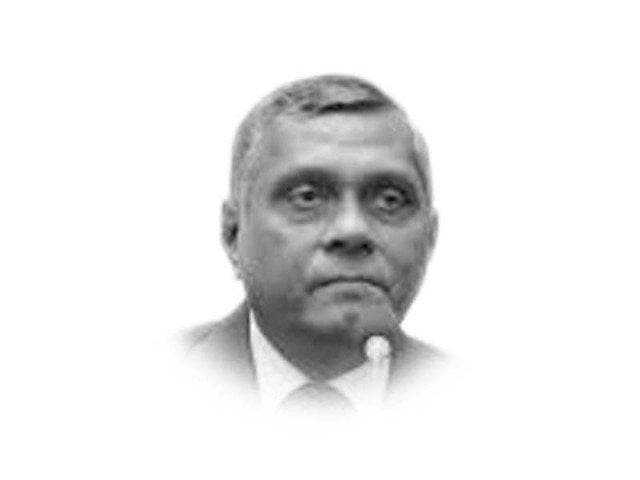
Diplomacy, culture, aid, trade, technology and investments are major forms of soft power. A Harvard University Professor Joseph Nye, who is the architect of soft power, in his article entitled ‘Soft Power’ published in the autumn 1990 issue of Foreign Policy and his book, Bound to Lead: The Changing Nature of American Power, examined in detail the changing dynamics of American power in the post-cold war era.
How soft power is termed as an innovative strategy to gain and sustain power without using the application of force is now being practised by China. Unlike the US which is known for its use of hard rather than soft power, Beijing made a history in the world today when its diplomatic offensive led to two major initiatives reflecting its edge in soft power: first, presentation of Ukrainian peace plan; and second thaw in Saudi-Iranian relationship reached with the China mediation. These two events are termed as a landmark in China’s soft power policy aimed at augmenting its influence by using diplomacy, negotiations, mediation and persuasion.
At a time when the Chinese President, Xi Jinping, has got a third term and the new Prime Minister, Li Qiang, at the 20th National Congress of the Communist Party of China held the other day, outlined plans for growth, prices, employment, private businesses as well as foreign relations, Beijing is determined to focus on China’s positive diplomacy based on preventing armed conflicts and stabilise the world order.
Six decades ago China was an impoverished country but under the leadership of Mao Zedong, the ruling Communist party embarked on massive programmes of industrialisation, modernisation in agriculture and policy of self-reliance which yielded results in the ‘great leap forward’ of 1960s and early 1970s. The second ‘great leap forward’ in China took place when under the leadership of Deng Xiaoping, Beijing embarked on ‘open door policy’ to promote foreign investments and market economy to turn things around. In 1979, China decided to follow policy of ‘soft power’ by focusing on development, non-intervention in the affairs of neighbours and expanding its global influence through cultural diplomacy. The third ‘great leap forward’ which further deepened Chinese policy of soft power took place in 2023 when the Chinese leadership, at the 20th National Congress of the Communist Party of China, embarked on a roadmap to become world’s number one economic power and deepen its influence, particularly in the developing world, by further strengthening its ‘build and road initiative’.
When the Chinese leadership became confident that it has the political and economic clout, it ventured on diplomatic initiatives challenging the Western influence by presenting Ukrainian peace plan and mediating between Saudi Arabia and Iran. The 12-point peace plan on Ukraine reflected Chinese resolve to manage a deadly conflict which has over the last one year led to the rupture in the supply chain of food and fuel and is a major threat to the world order. Yet, the West failed to give a positive response to the Chinese peace plan suspecting that Beijing, under the cover of its diplomatic move, aims to attack and occupy Taiwan.
Following is the Chinese peace plan to end Russia-Ukrainian war:
Respecting the sovereignty of all countries. Abandoning the cold war mentality. Ceasing hostilities. Resuming peace talks. Resolving the humanitarian crisis. Protecting civilians and prisoners of war (POWs). Keeping nuclear power plants safe. Reducing strategic risks. Facilitating grain exports. Stopping unilateral sanctions. Keeping industrial and supply chains stable. Promoting post-conflict reconstruction.
How Beijing, which has close strategic ties with Moscow, will deal with the Western allegations that it is secretly providing military assistance to Russia is yet to be seen. China accuses the West of following a policy of containment by using QUAD, composed of Australia, India, Japan and the US. Under its soft power policy, China will not fall into the trap of plunging Beijing in an armed conflict in South China Sea or elsewhere.
As far as the second Chinese diplomatic offensive, on the mending of fences between Iran and Saudi Arabia, is concerned, it has surprised the US and Israel because both were the beneficiaries of the Saudi-Iranian conflict. A trilateral statement was issued by China, Iran and Saudi Arabia on March 10 which announced that Riyadh and Teheran will reopen their embassies and missions in each other’s countries within two months and reactivate a joint security cooperation accord and an earlier pact on trade, economy and investment. With Chinese mediation going on for months, the thaw in Iran-Saudi relations took place which got ruptured in 2016 when Saudi Arabia executed a Shia cleric, Nimr al Nimr, leading to Iran-backed demonstrations. For years the West, Gulf States and Israel forged a unified policy on Iran calling it an international pariah involved in clandestine nuclear weapons programme and supporting Hizb e Jihad in Lebenon and Hamas in the Gaza.
It is yet to be seen how China will react if the Iranian-Saudi reconciliation fails to yield positive results and the two sides are back to square one. Yet a major outcome of Chinese diplomatic offensive to end Russian-Ukrainian war and Saudi-Iranian reconciliation is the dilution of American role in two of the global flashpoints. Israel may go solo to attack Iranian nuclear installations as it cannot take the risk that Teheran is armed with nuclear weapons and is a direct threat to the Jewish state. Gulf Arab states still share the Israeli and US perceptions on Iranian nuclear programme and, along with the sectarian conflict, are mindful of consequences if Iran like North Korea succeeds in going nuclear. Furthermore, alarmists argue that the Shia-Sunni conflict in the Arabian Peninsula and Persia is centuries old and it will be a great challenge to mend fences between Iran and Arab Gulf states.
Will China be embarrassed if its soft power policy fails and the Saudi-Iranian understanding comes to an end and the war in Ukraine continues? It is for the first time that China has taken two-pronged diplomatic initiative to resolve conflicts and it needs to monitor how things unfold. If China wants to play a leadership role in global affairs, it needs to align with likeminded countries that are against the US-dominated world order. A nexus with Russia may be counter-productive because of Moscow’s belligerent posture. BRI and other developmental projects supported by China in various Third World countries will certainly enhance Beijing’s clout in global affairs.
Published in The Express Tribune, March 21st, 2023.
Like Opinion & Editorial on Facebook, follow @ETOpEd on Twitter to receive all updates on all our daily pieces.













COMMENTS (4)
Comments are moderated and generally will be posted if they are on-topic and not abusive.
For more information, please see our Comments FAQ